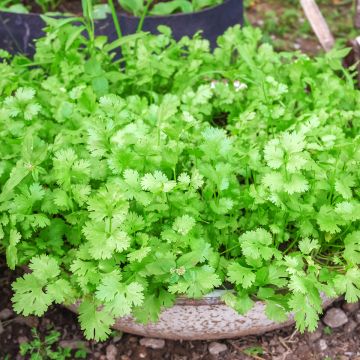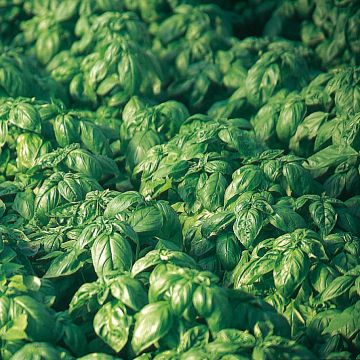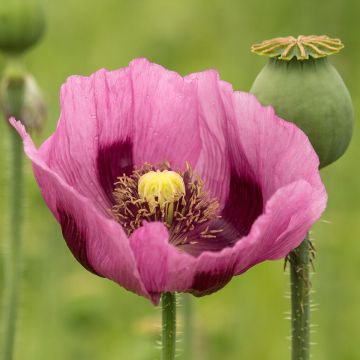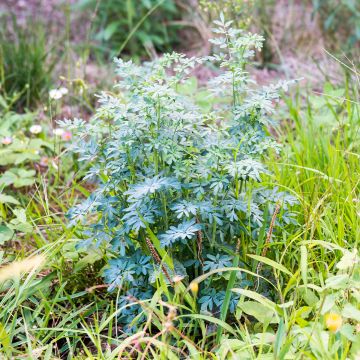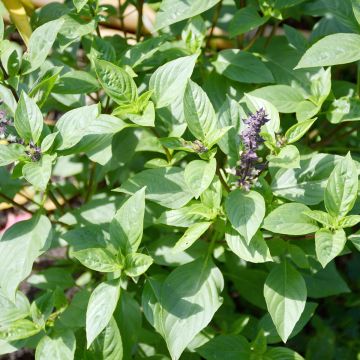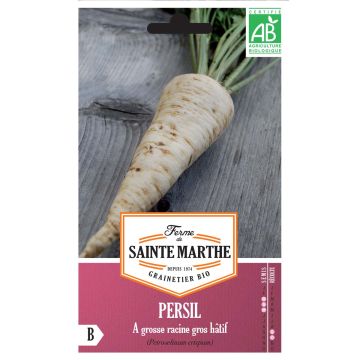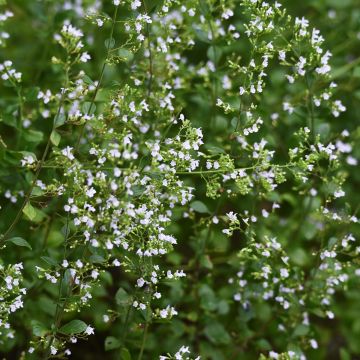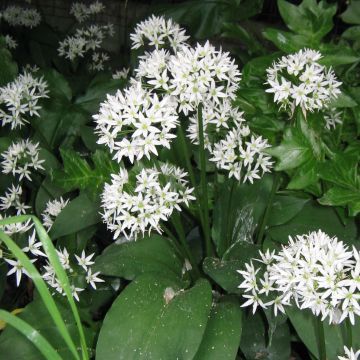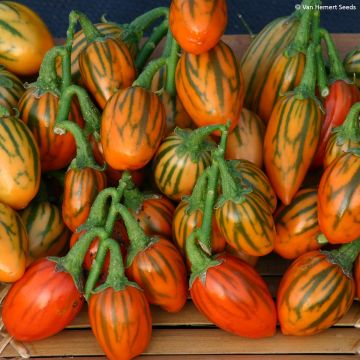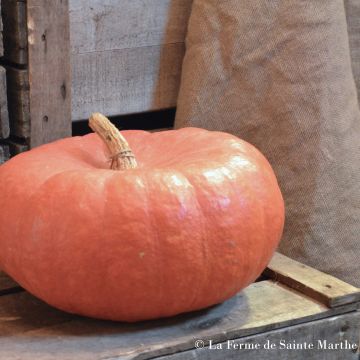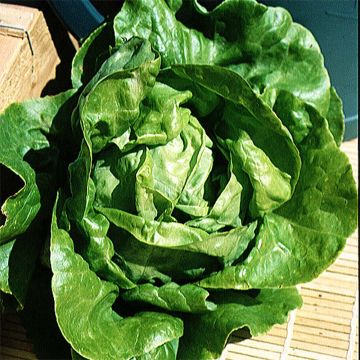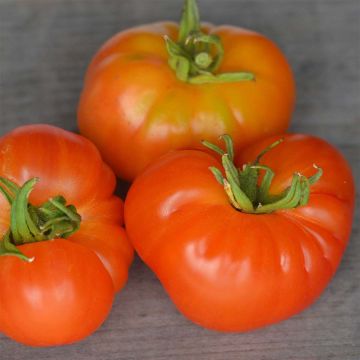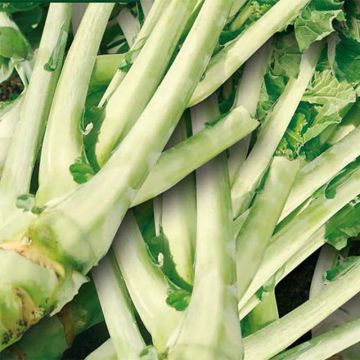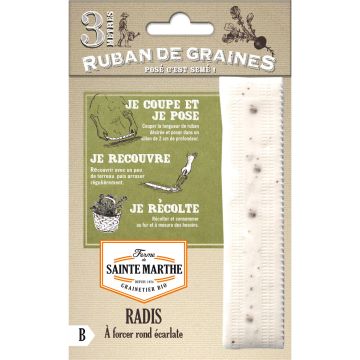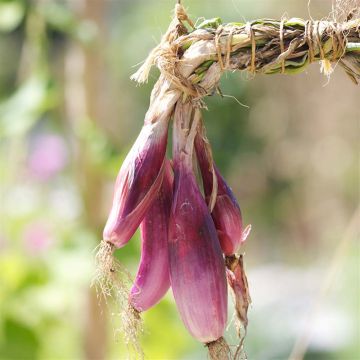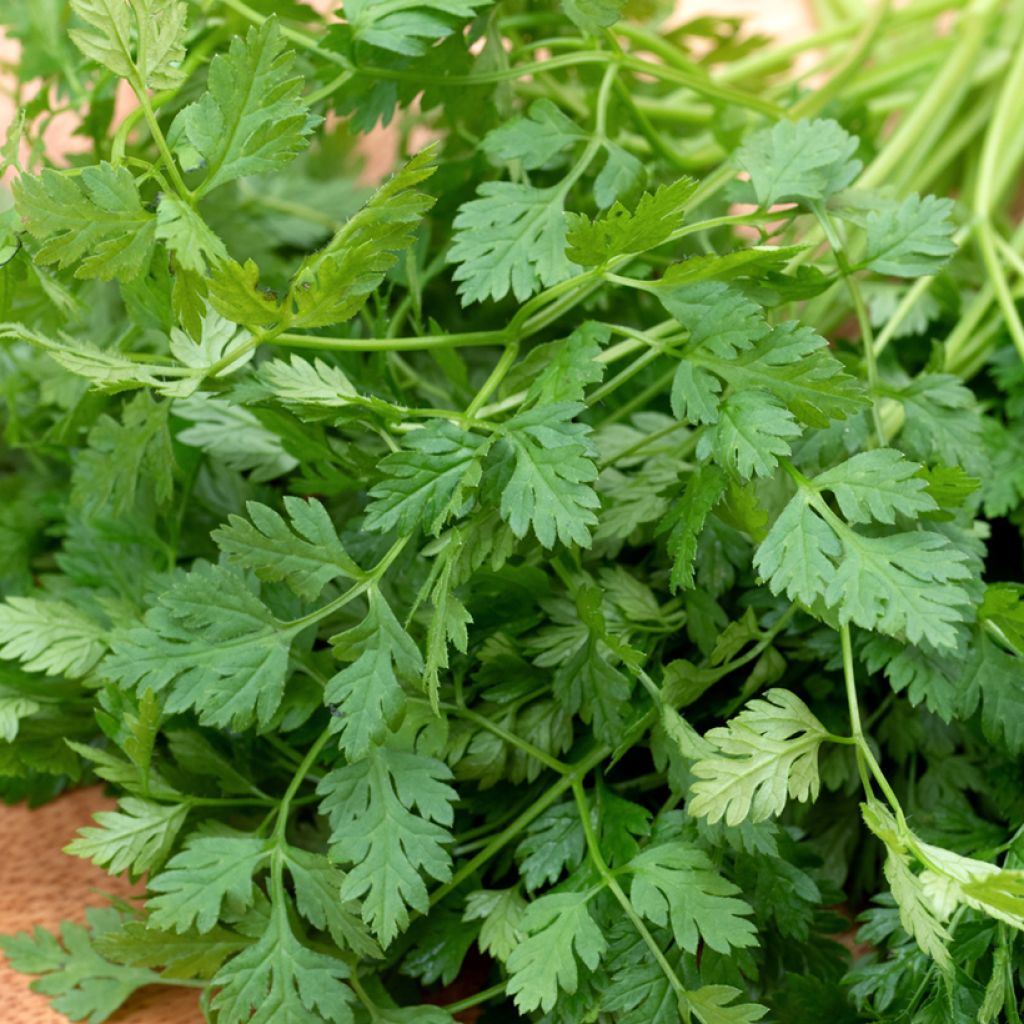

Curled Chervil
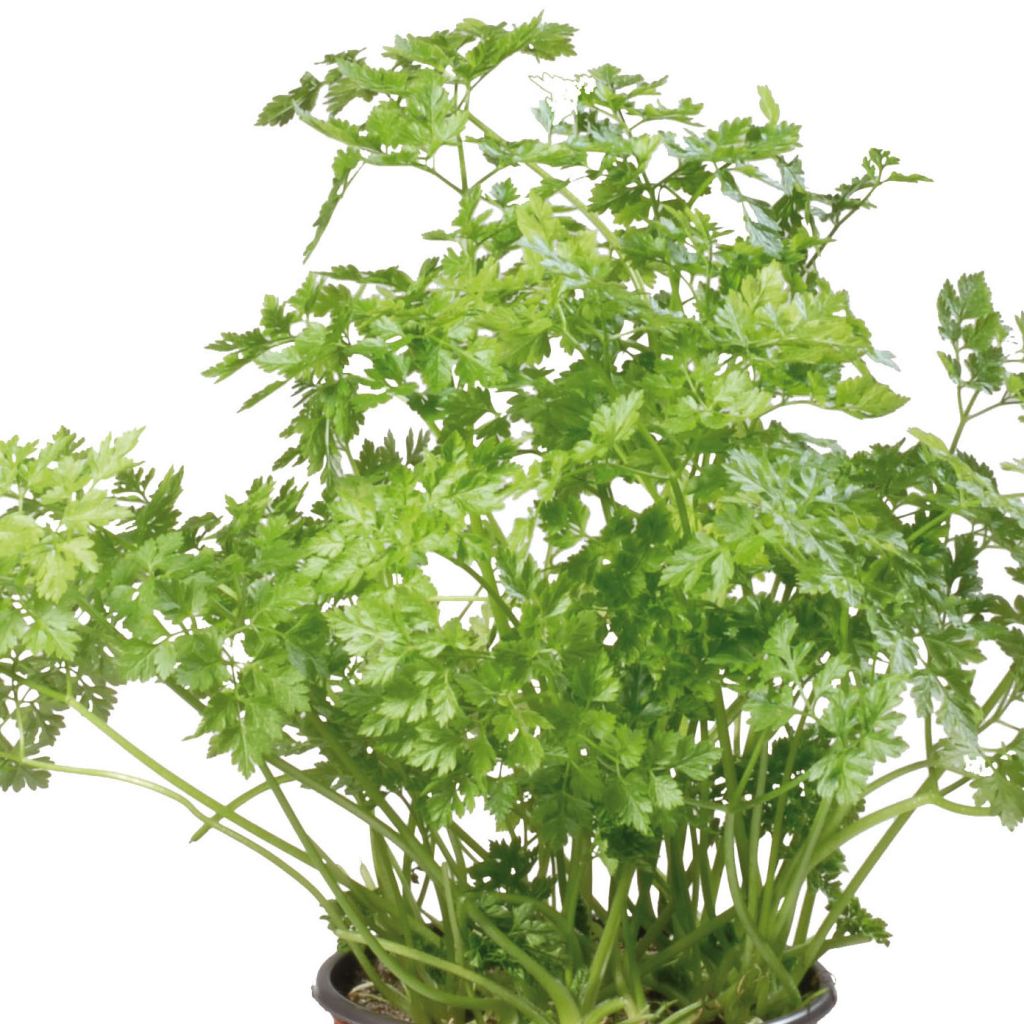

Curled Chervil
View more pictures
Hide images
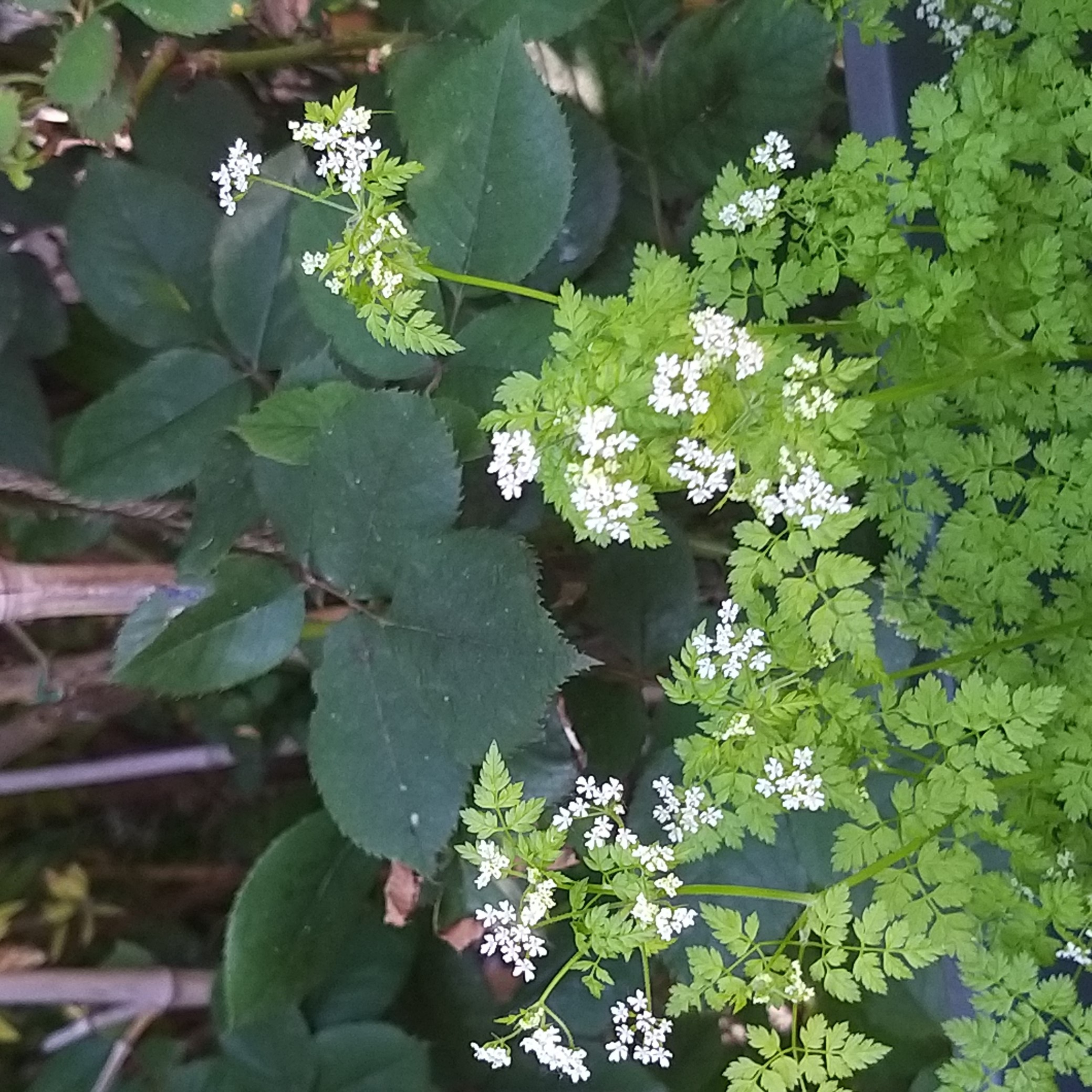
Thierry P.

May flowering - image 1
Thierry P. • 84 FR
Curled Chervil
Anthriscus cerefolium Frisé
French parsley, Garden chervil
Seed condition satisfactory.
monique , 04/06/2020
Special offer!
Receive a €20 voucher for any order over €90 (excluding delivery costs, credit notes, and plastic-free options)!
1- Add your favorite plants to your cart.
2- Once you have reached €90, confirm your order (you can even choose the delivery date!).
3- As soon as your order is shipped, you will receive an email containing your voucher code, valid for 3 months (90 days).
Your voucher is unique and can only be used once, for any order with a minimum value of €20, excluding delivery costs.
Can be combined with other current offers, non-divisible and non-refundable.
Home or relay delivery (depending on size and destination)
Schedule delivery date,
and select date in basket
This plant carries a 6 months recovery warranty
More information
We guarantee the quality of our plants for a full growing cycle, and will replace at our expense any plant that fails to recover under normal climatic and planting conditions.
Description
Chervil is an annual herb, commonly used in French cuisine. This compact, curled variety has delicate, finely-cut curled leaves and a mild aniseed flavour. A cool season plant, suitable for growing in pots! Stagger your sowing from February to September. Ready to harvest in 4 to 6 weeks!
Chervil, also known as French parsley or garden chervil, is a herb from the Apiaceae (Umbelliferae) family. Its leaves are commonly used in French cuisine as a part of the “fines herbes” herb mixture, alongside parsley, chives and tarragon. Their slight anise flavour goes well with vegetable, fish or poultry dishes (make sure to add them at the last minute for full flavour!). The fresh leaves can also be finely chopped and added to salads.
Chervil can be grown outdoors in the vegetable garden or in pots. It generally reaches a height of 40 to 60 cm. For best results, choose a partially shaded spot with cool, light, humus-rich soil. If necessary, amend with compost in late autumn or early spring.
Harvesting: Chop the leaves off at ground level, as and when required. Harvest 6 weeks after sowing, from April to November. In summer, pretty white umbels of flowers will emerge over the foliage. To avoid bolting and to encourage leafier plants, pinch out the flower stems when they appear.
Storage: Chervil leaves are best eaten fresh. They can also be frozen for later use. It is possible to dry the leaves by hanging the stems upside down in a dry, well-ventilated place. However, drying greatly diminishes their aroma.
Good to know: Chervil likes the sun in spring but will soon go to seed in summer if too exposed. Grow alongside larger plants such as tomatoes, that will provide shade during the summer months.
NB. Organic seeds (in French "AB" for "Agriculture Biologique") are produced from plants that aren't treated with phytosanitary products (insecticides, weed killers). The seeds do not undergo post-harvest treatment. They carry the AB label and are approved by Ecocert, an independent structure.
Report an error about the product description
Harvest
Plant habit
Foliage
Botanical data
Anthriscus
cerefolium
Frisé
Apiaceae
French parsley, Garden chervil
Cultivar or hybrid
Annual
Other Herb seeds
View all →Planting and care
How to sow:
Direct sow in rows from March to September (or from February to September in regions with milder winters). Stagger your sowing for longer harvests. Germination takes about 12 days.
Sow in furrows, spaced about 20 cm apart and 2 cm deep. Sow a seed every centimetre and cover with fine soil. Firm down the soil with the back of a rake and gently water.
When the seedlings reach the 4 leaf stage, thin them out, keeping one seedling every 10 cm.
For earlier crops, chervil can be sown under cover from October onwards.
Care:
Hoe and weed regularly. Make sure to keep the soil moist, especially during dry spells.
Seedlings
Care
Intended location
-
, onOrder confirmed
Reply from on Promesse de fleurs
Similar products
Haven't found what you were looking for?
Hardiness is the lowest winter temperature a plant can endure without suffering serious damage or even dying. However, hardiness is affected by location (a sheltered area, such as a patio), protection (winter cover) and soil type (hardiness is improved by well-drained soil).

Photo Sharing Terms & Conditions
In order to encourage gardeners to interact and share their experiences, Promesse de fleurs offers various media enabling content to be uploaded onto its Site - in particular via the ‘Photo sharing’ module.
The User agrees to refrain from:
- Posting any content that is illegal, prejudicial, insulting, racist, inciteful to hatred, revisionist, contrary to public decency, that infringes on privacy or on the privacy rights of third parties, in particular the publicity rights of persons and goods, intellectual property rights, or the right to privacy.
- Submitting content on behalf of a third party;
- Impersonate the identity of a third party and/or publish any personal information about a third party;
In general, the User undertakes to refrain from any unethical behaviour.
All Content (in particular text, comments, files, images, photos, videos, creative works, etc.), which may be subject to property or intellectual property rights, image or other private rights, shall remain the property of the User, subject to the limited rights granted by the terms of the licence granted by Promesse de fleurs as stated below. Users are at liberty to publish or not to publish such Content on the Site, notably via the ‘Photo Sharing’ facility, and accept that this Content shall be made public and freely accessible, notably on the Internet.
Users further acknowledge, undertake to have ,and guarantee that they hold all necessary rights and permissions to publish such material on the Site, in particular with regard to the legislation in force pertaining to any privacy, property, intellectual property, image, or contractual rights, or rights of any other nature. By publishing such Content on the Site, Users acknowledge accepting full liability as publishers of the Content within the meaning of the law, and grant Promesse de fleurs, free of charge, an inclusive, worldwide licence for the said Content for the entire duration of its publication, including all reproduction, representation, up/downloading, displaying, performing, transmission, and storage rights.
Users also grant permission for their name to be linked to the Content and accept that this link may not always be made available.
By engaging in posting material, Users consent to their Content becoming automatically accessible on the Internet, in particular on other sites and/or blogs and/or web pages of the Promesse de fleurs site, including in particular social pages and the Promesse de fleurs catalogue.
Users may secure the removal of entrusted content free of charge by issuing a simple request via our contact form.
The flowering period indicated on our website applies to countries and regions located in USDA zone 8 (France, the United Kingdom, Ireland, the Netherlands, etc.)
It will vary according to where you live:
- In zones 9 to 10 (Italy, Spain, Greece, etc.), flowering will occur about 2 to 4 weeks earlier.
- In zones 6 to 7 (Germany, Poland, Slovenia, and lower mountainous regions), flowering will be delayed by 2 to 3 weeks.
- In zone 5 (Central Europe, Scandinavia), blooming will be delayed by 3 to 5 weeks.
In temperate climates, pruning of spring-flowering shrubs (forsythia, spireas, etc.) should be done just after flowering.
Pruning of summer-flowering shrubs (Indian Lilac, Perovskia, etc.) can be done in winter or spring.
In cold regions as well as with frost-sensitive plants, avoid pruning too early when severe frosts may still occur.
The planting period indicated on our website applies to countries and regions located in USDA zone 8 (France, United Kingdom, Ireland, Netherlands).
It will vary according to where you live:
- In Mediterranean zones (Marseille, Madrid, Milan, etc.), autumn and winter are the best planting periods.
- In continental zones (Strasbourg, Munich, Vienna, etc.), delay planting by 2 to 3 weeks in spring and bring it forward by 2 to 4 weeks in autumn.
- In mountainous regions (the Alps, Pyrenees, Carpathians, etc.), it is best to plant in late spring (May-June) or late summer (August-September).
The harvesting period indicated on our website applies to countries and regions in USDA zone 8 (France, England, Ireland, the Netherlands).
In colder areas (Scandinavia, Poland, Austria...) fruit and vegetable harvests are likely to be delayed by 3-4 weeks.
In warmer areas (Italy, Spain, Greece, etc.), harvesting will probably take place earlier, depending on weather conditions.
The sowing periods indicated on our website apply to countries and regions within USDA Zone 8 (France, UK, Ireland, Netherlands).
In colder areas (Scandinavia, Poland, Austria...), delay any outdoor sowing by 3-4 weeks, or sow under glass.
In warmer climes (Italy, Spain, Greece, etc.), bring outdoor sowing forward by a few weeks.






























